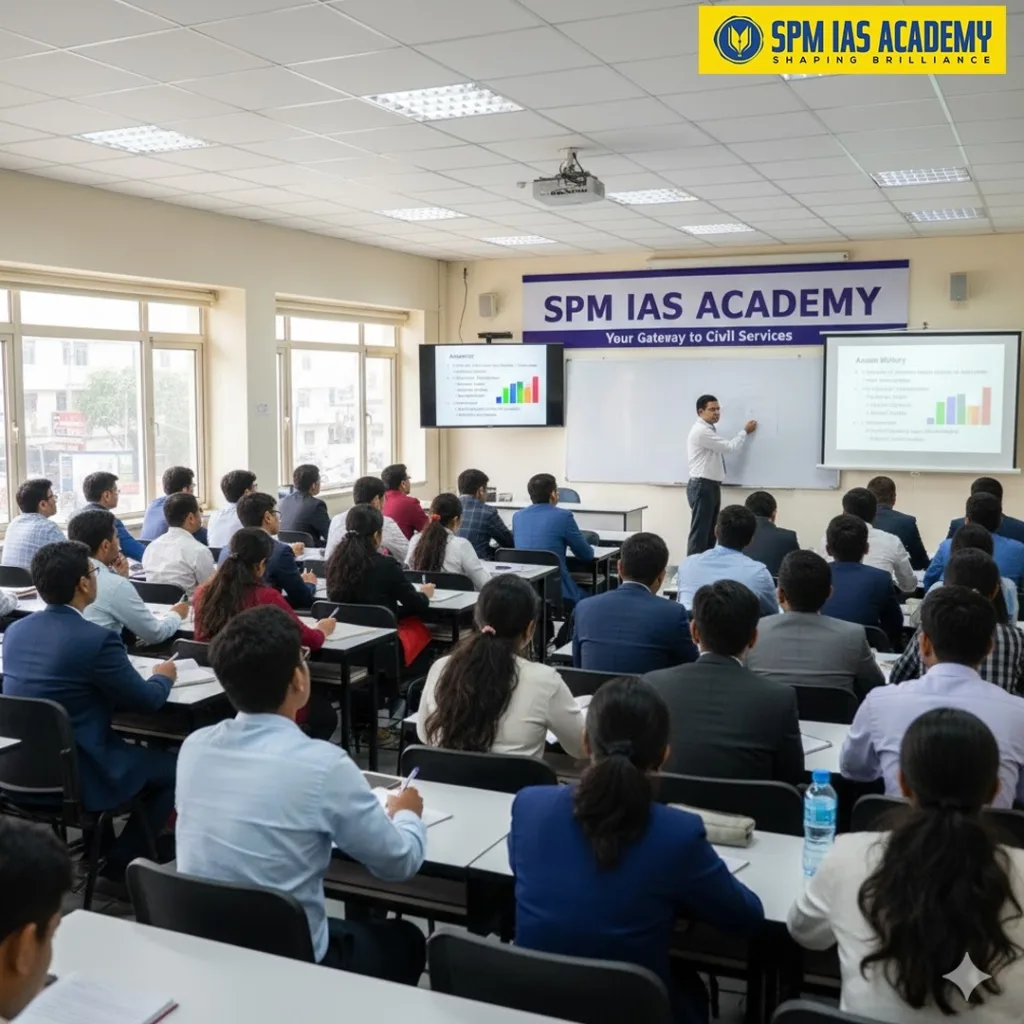When it comes to the UPSC Mains preparation strategy, having a meticulous and well-structured plan is essential. Clearing the Prelims is only the beginning , but the Mains stage is one that truly determines your selection and rank in the Civil Services Examination. Since Prelims is only qualifying in nature, your Mains performance will define your place in the final merit list.
Therefore, it becomes crucial to adopt a UPSC Mains preparation strategy that combines structured study, analytical writing, current affairs integration, and disciplined revision. Hence , the following sections will help you understand how to approach Mains preparation in the most effective way possible.
What is the Importance of a Structured UPSC Mains Preparation Strategy
A well-planned UPSC Mains preparation strategy serves as the foundation of your success. It helps you stay organized, prioritize topics based on weightage, and manage time efficiently. Candidates often fail not because of a lack of knowledge but because they lack a systematic approach. In the next three months, your focus should be on building conceptual clarity, revising efficiently, and mastering answer writing.
When starting your UPSC preparation, having a clear plan is essential. For detailed insights on how to begin your UPSC journey and set a strong foundation, check out our guide on starting UPSC exam preparation effectively.
What are the Proven Strategies to Crack UPSC Mains 2026
The Mains exam tests your analytical depth, conceptual understanding, and writing precision. To succeed, follow these tried-and-tested Strategies to crack UPSC Mains effectively:
- Understand the Complete Syllabus : First , keep the UPSC Mains syllabus visible on your study table as knowing the scope of every paper helps you connect static topics with dynamic current affairs.
- Set a Realistic Timeline : Second , plan your 90 days wisely. Try to allocate the first 45 days for comprehensive revision, the next 30 days for answer writing practice, and the final 15 days for mock tests and conceptual brushing.
- Practice Daily Answer Writing : Third , and most importantly , write 2–3 answers daily which builds speed and coherence. Also , practice structuring your answers using the introduction , body , conclusion format.
- Analyze Previous Year Questions (PYQs) : Importantly , if you understand question patterns , it will help you to identify recurring topics and align your preparation accordingly.
- Strengthen Essay Writing : Moreover , work on developing multi-dimensional perspectives for essay papers. Hence , reading editorials and practicing one essay weekly will refine your expression and content organization.
- Master Your Optional Subject : A strong optional paper can significantly impact your final rank. So , focus on conceptual understanding rather than rote learning.
- Integrate Current Affairs with GS Papers : Link daily news with static topics , as this approach enhances answer quality and shows awareness of real-world issues.
- Maintain a Healthy Study-Life Balance : Good physical and mental health sustains consistency. So , try to exercise, meditate regularly and take short breaks to refresh your focus.
Avoiding common mistakes during your UPSC preparation can significantly enhance your chances of success. Learn more about these critical errors and how to steer clear of them by reading this guide on the common UPSC preparation mistakes to avoid.

Building the Perfect 3-Month UPSC Mains Study Plan
For an ideal UPSC Mains preparation strategy, divide your three months efficiently:
- Month 1: Revise all GS Papers, Optional Paper 1, and start daily answer writing.
- Month 2: Focus on Essay Paper, Optional Paper 2, and Ethics GS-IV. Attempt two mock tests per week.
- Month 3: Focus entirely on revisions, mock analysis, and current affairs integration. Work on time management and clarity of expression.
Therefore, this planned schedule will ensure coverage of the entire syllabus without burnout.
Role of Answer Writing Practice in UPSC Mains

Answer writing is the heart of your UPSC Mains preparation strategy. You must be able to express your knowledge logically and precisely within 150–250 words per question. Practice writing under timed conditions, and seek feedback from mentors or peers. Hence , structured writing with flowcharts, keywords, and examples can help you stand out in evaluation.
UPSC Mains Preparation with SPM IAS Academy
At SPM IAS Academy, students are guided through a result-oriented and personalized UPSC Mains preparation strategy. The academy ensures:
- First , daily Newspaper Analysis by Satyajit Sir, which helps students integrate current affairs into their Mains answers.
- Second , weekly Mock Tests that simulate the actual UPSC environment and build confidence.
- Third , daily MCQ Tests to reinforce conceptual clarity.
- Moreover , we have main Answer Writing Sessions which polishes presentation and articulation skills.
- Lastly , the one-to-one mentorship, ensuring every student receives personalized guidance tailored to their strengths and weaknesses.
Hence , the academy’s holistic approach ensures that aspirants not only prepare for the exam but also evolve as thinkers, writers, and administrators ready to serve the nation.
SPM IAS Academy is widely recognized as the best UPSC coaching in Assam for serious aspirants.

Conclusion
To conclude, a well-designed UPSC Mains preparation strategy demands consistency, analytical writing, and guided mentorship. With only three months in hand, focus on revision, current affairs linkage, and continuous practice. Remember, success in Mains isn’t about how much you study but how effectively you present what you know. With discipline and the right guidance from mentors like we have in SPM IAS Academy, cracking UPSC Mains in 2025 is entirely achievable.
Explore expert-guided UPSC coaching in north east India with structured mentorship and focused Mains preparation support.
FAQs on UPSC Mains Preparation Strategy
Begin by revising your General Studies topics and reading relevant current affairs. Start daily answer writing immediately to build writing speed and analytical clarity.
A focused three-month plan is sufficient if you’ve already covered the syllabus before Prelims. The key lies in revision, writing practice, and consistent evaluation.
NCERTs, standard GS books , and quality newspapers like The Hindu or Indian Express are essential. Supplement these with government reports and SPM IAS Academy’s curated notes.
Practice writing two answers daily, analyze PYQs, and get feedback from mentors. Focus on structure, clarity, and relevance to the question.
Mentorship ensures you receive direction, consistency, and motivation. At SPM IAS Academy, one-to-one mentorship bridges learning gaps and accelerates progress effectively.












